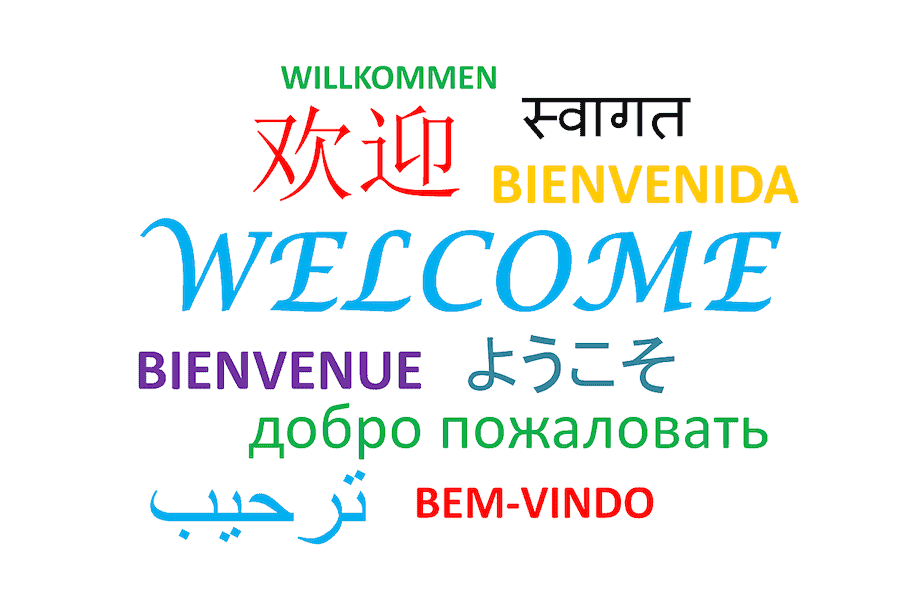
Learning a new language for fun is the best reason to learn.
Should you learn a language for fun? If you enjoy learning new things, then a language is a great thing to learn. Also, the best learning is always done for fun as enjoyment keeps us motivated. Once you learn the basics, using the language will meaning talking to people which is also fun.
If you are planning to learn a language, it is essential to know that not all languages are the same. Your general ability to learn new things, your experience with other languages, and your patience are all important factors.
If you are thinking of learning a new language, there are many things you need to consider if you want it to be a fun experience.
Page Contents
Learning a Language? Consider These Things
Learning a new language will always be a challenge, but some languages are easier to learn than others. According to the Foreign Services Institute , different languages take different amounts of time to learn. French, Spanish and Italian may take 600 to 750 class hours to learn. Whereas Japanese, Chinese, or Korean can take well over 2200 class hours.
, different languages take different amounts of time to learn. French, Spanish and Italian may take 600 to 750 class hours to learn. Whereas Japanese, Chinese, or Korean can take well over 2200 class hours.
These numbers matter because if you choose an easier language, you will see success much sooner, and you will be motivated to keep learning more. But if you select a difficult language, you might find yourself getting discouraged and may even consider giving up too soon. These timelines are helpful because if you want to have fun learning a language, you need to see progress to keep motivated.
Another thing to keep in mind is how much fun you have learning new things. This isn’t a question about if you are a good student or not, cause that does not matter. What matters most is your willingness to learn new things, and is that something you often do?
If you are always learning, then learning something new is easy, but if you rather play video games, it is going to be much harder.
If you read a lot or are curious about other countries’ culture, learning a new language is going to complement those interests. If you like watching Korean dramas, then learning Korean makes perfect sense, as you are already curious about the culture because of the shows you watch.
Have you ever learnt a language before? If you’ve been through the process, it will be easier to learn another. This is especially true if you are trying to learn a related language. The romantic languages have many similarities, so if you know one, it will make it a lot easier to understand another.
One of my co-workers is from Columbia, so his native tongue is Spanish, he has spent many years learning English and is pretty good at it now. But in the office, he can have conversations in French even though he has never had any formal training.
Another important aspect to consider is where are you going to learn the language. If you are going to be stuck at home reading textbooks by yourself, that won’t be very enjoyable. It is always better to do things with other people, so if you can find classes, it will be much more fun to learn.
Classes will speed up your learning, and they will also give you a chance to find a study partner.
On the other hand, if you are serious about learning a new language, it might be helpful to go live where they speak that language. The best way to learn something new is to immerse yourself in it as much as you can. In this case, the more immersed the better.
What Language Should You Learn?
Are you planning to go on a trip in a few months? You will have much more fun learning an easy language like French, Spanish, Italian, Dutch, Danish or a Scandinavian language if you plan to travel to one of those countries.
For me, this is why I’ve been learning Japanese, as my wife’s family only speaks Japanese, so connecting with them is important to me. So whenever we visit them, using my new language skills is important because it helps us connect. The ability to connect drives my motivation, but it also helps me have a better time when we are in Japan.
Speaking the local language makes it easier to enjoy yourself while you visit someplace new.
I love to travel, so I lived in Korea for a little over a year; while I was there, I picked up a decent amount of Korean while never taking a single lesson. The reason was that while I was there, people were speaking Korean all the time, so it was all I heard. Besides, I had no choice but to use it when I wanted to do things like go to restaurants or buy things at stores. Travelling is a lot of fun, but it is way more fun when you can speak the language.
Should you learn a language for fun, yes, but don’t just pick any language, make sure you choose a language that has value to you.
If you are planning a trip, learning the language of the place you are planning to go is much more valuable than learning the language of a place you never plan to visit.
If you are already into shows and dramas from Asia, then it makes sense to learn the language as you are already curious about the culture. Don’t randomly pick a language; if you are going to learn something, learn something that you can use.
Learning a Language Is Good For Your Brain

One of the most significant benefits of learning a new language is that it will make you smarter. That is a big claim, but studies from Sweden show just that. It is essential to keep in mind that these brain size changes were directly related to the parts of the brain used for language. But that doesn’t mean this information isn’t important.
show just that. It is essential to keep in mind that these brain size changes were directly related to the parts of the brain used for language. But that doesn’t mean this information isn’t important.
Keeping in mind all the skills that it takes to learn a language, it isn’t much of a stretch to assume that it helps your brain in other ways too.
Taking the time to study is an important skill in itself, and it will help you when it comes to learning other things in the future.
Learn good study skills, will also help with anything else you need to learn. Surely, we can’t say that learning a language will make you smarter, but we can say that it will teach you to learn in a smarter way.
Learning a language for fun also helps with creativity, which is oftentimes associated with intelligence. If you have different ways of thinking or solving problems, you will be a better problem solver. Being good a problem-solving is important in so many aspects of life, so it isn’t something to take lightly.
Learning a language requires good problem solving, which will help you with your homework if you are a student, or with your work if you have a job.
Any skill that helps you with your learning will make future learning easier. So efforts that help you with your organization and planning skills will also help you perform better in the future. All of these things will help you be smarter, which makes work easier in the long run.
Other Reasons To Learn
You will never truly realize the benefits of something until you do it yourself and see for yourself. Learning a language for fun is going to be a challenge, and your results may vary, but the only way you can know if the journey is right for you is to try it out yourself.
When you learn a new language, you open yourself up to a whole bunch of new opportunities.
The biggest opportunity is that there are more people you can talk to. As English speakers, we are pretty lucky because everyone wants to know our language. But forgetting that, new language skills will help you communicate with different people and could qualify you for jobs that you never knew were possible.
Often people give up on things that are too difficult for two reasons; 1) they aren’t up to the challenge, or 2) the task simply isn’t fun.
If you aren’t having fun or seeing benefits from your efforts, then there won’t be any reason to keep doing them. You either need to ensure that you want to learn a language and keep at it, or quit and move onto something more enjoyable.
Are you trying to learn a new language? Why are you doing it or what is your motivation for expanding your horizons?
